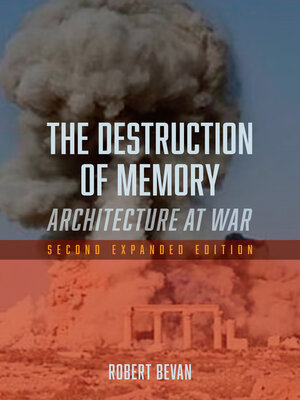
Sign up to save your library
With an OverDrive account, you can save your favorite libraries for at-a-glance information about availability. Find out more about OverDrive accounts.
Find this title in Libby, the library reading app by OverDrive.



Search for a digital library with this title
Title found at these libraries:
| Library Name | Distance |
|---|---|
| Loading... |
Crumbled shells of mosques in Iraq, the fall of the World Trade Center towers on September 11: when architectural totems such as these are destroyed by conflicts and the ravages of war, more than mere buildings are at stake. The Destruction of Memory—now available in this accessible, pocket edition—reveals the extent to which a nation weds itself to its landscape. Robert Bevan argues that such destruction not only shatters a nation's culture and morale but is also a deliberate act of eradicating a culture's memory and, ultimately, its existence.
Bevan combs through world history to highlight a range of wars and conflicts in which the destruction of architecture was pivotal. From Cortez's razing of Aztec cities to the carpet bombings of Dresden and Tokyo in World War II to the war in the former Yugoslavia, The Destruction of Memory exposes the cultural war that rages behind architectural annihilation, revealing that in this subliminal assault lies the complex aim of exterminating a people. He provocatively argues for "the fatally intertwined experience of genocide and cultural genocide," ultimately proposing the elevation of cultural genocide from "collateral damage" to a crime punishable by international law.
Bevan combs through world history to highlight a range of wars and conflicts in which the destruction of architecture was pivotal. From Cortez's razing of Aztec cities to the carpet bombings of Dresden and Tokyo in World War II to the war in the former Yugoslavia, The Destruction of Memory exposes the cultural war that rages behind architectural annihilation, revealing that in this subliminal assault lies the complex aim of exterminating a people. He provocatively argues for "the fatally intertwined experience of genocide and cultural genocide," ultimately proposing the elevation of cultural genocide from "collateral damage" to a crime punishable by international law.







